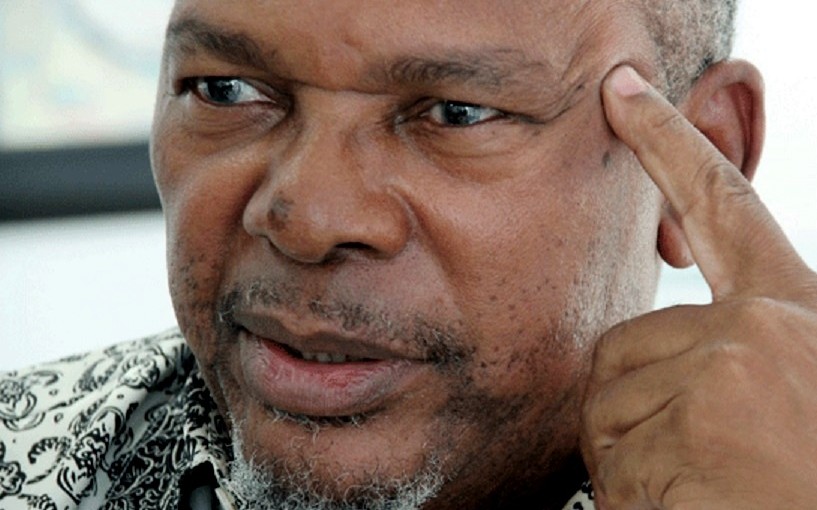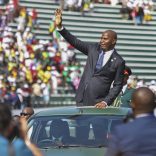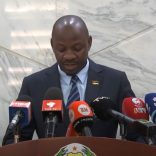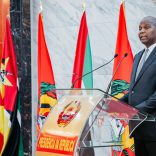Mozambique: Namibia's President arrives in Maputo for one-day working visit
Senior Constitutional expert warns against abolishing direct election of mayors

Teodato Hunguana (In file CoM)
Senior constitutional lawyer Teodato Hunguana has warned that the proposed cancellation of universal suffrage for the election of Mozambican mayors is entirely unconstitutional, and cannot be rescued by any constitutional amendment or even (as some have proposed) by a referendum.
The consensus on “decentralisation” reached between the government and the Renamo rebels, and announced by President Filipe Nyusi on 7 February envisages the abolition of the direct election of mayors. Instead, in municipalities, districts and provinces only assemblies will be directly elected. Whichever political party wins a majority of votes in the Assembly will then choose, from among the Assembly’s members, the mayor, district administrator or provincial governor.
In an article published in Tuesday’s issue of the independent daily “O Pais”, Hunguana pointed out that this violates the fundamental principle contained in Article 2 of the Mozambican Constitution, namely that “Sovereignty resides in the people”. Instead, the draft constitutional amendments place that sovereignty in the hands of the political parties.
Hunguana’s words must be taken seriously since he is a former judge on the Constitutional Council, Mozambique’s highest body in matters of constitutional law. He is one of the top jurists in the ruling Frelimo Party, and has held various government positions, including Minister of Justice, of Information and of Labour.
While the Constitution recognises that political parties are “a fundamental instrument for the democratic participation of citizens in the governance of the country”, the amendments go well beyond this “and transfer the ownership of sovereignty, which would cease to reside in the people and would instead reside in the parties”.
Hunguana notes that the right to suffrage is among the matters that the Constitution itself states cannot be amended. Article two, stating that sovereignty resides in the people, is so fundamental, he argues, that it cannot be altered, even by resort to a referendum. This difficulty is “insuperable”.
But Hunguana does see one way out. This would be to state quite explicitly that, whoever heads the list of a party’s candidates for the provincial, district or municipal assemblies would become the governor, administrator or mayor, if that party wins.
This would be a way of “safeguarding direct suffrage”, since when citizens voted for an assembly they need only look at who was heading the party list to know who they were choosing for governor, administrator or mayor. Although there would only be one ballot paper, the voters would be voting simultaneously for an assembly and for the governor, administrator or mayor.
Hunguana regarded this as quite different from allowing the winning party to choose whoever it liked as governor, administrator or mayor.
It remains to be seen whether Renamo would accept a “head of the list” solution. Hunguana says that from his contacts with sources in the negotiations, he understood it was Renamo, rather than the government, which demanded that the winning political parties should directly nominate mayors, administrators or governors.
The amendments are now before the country’s parliament, the Assembly of the Republic, which begins its first sitting of 2018 on Wednesday.












Leave a Reply
Be the First to Comment!
You must be logged in to post a comment.
You must be logged in to post a comment.